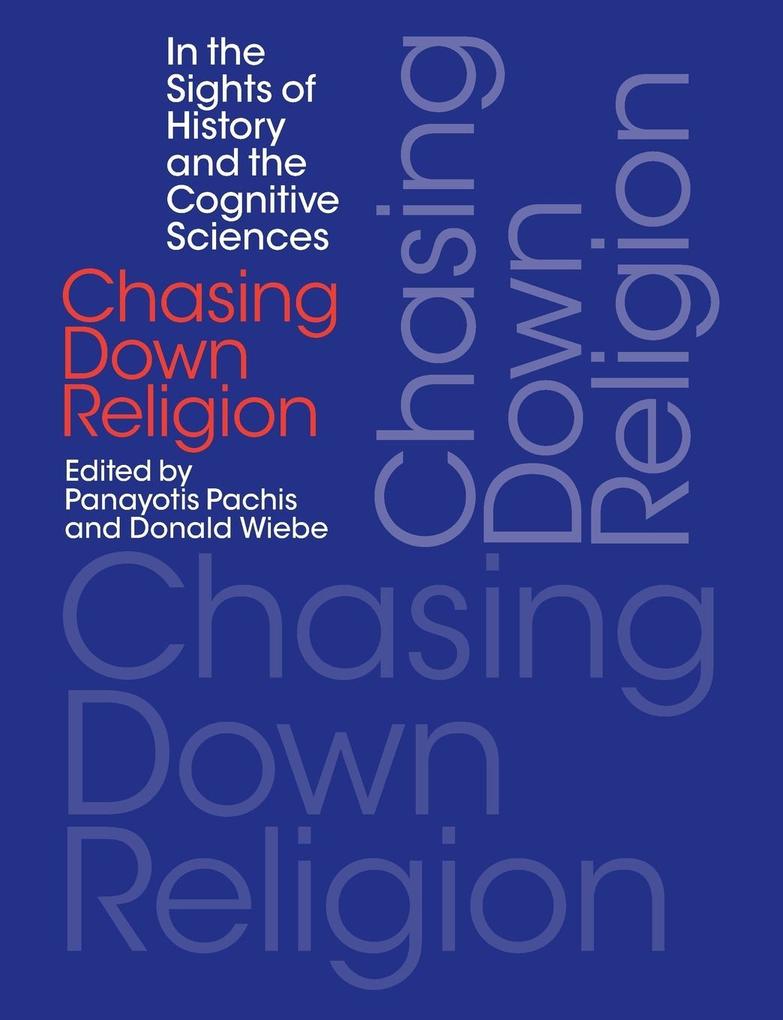Whether as a historian finding solutions to unresolved problems or as a scientist finding the causes for events and actions, Luther Martin’s primary focus has been to get to the roots of the religious impulse in human existence. This collection of essays from scholars of his own generation and from his best students cover the three major strands of his work: the Greco-Roman world, cognitive science approaches to explaining religious phenomena and methodological issues in the academic study of religions. The contributions build on the work of Luther Martin and further the ongoing discussion and debate within these areas of religious studies.
Inhaltsverzeichnis
1. Ancient and Modern Approaches to the Representation of Supernatural Beings: Dio Chrisostom (Oration 12) and Dan Sperber (Explaining Culture) Compared Roger Beck, University of Toronto
2. Gnosis in European Religious History Ulrich Berner, University of Bayreuth
3. The First Shall be the Last: The Gospel of Mark after the First Century Willi Braun, University of Alberta
4. Comparative Religion Scholars in Debate: Theology vs History in Letters Addressed to Ugo Bianchi Casadio Giovanni, University of Salerno
5. Why did Greek and Romans Pray Aloud? Anthropomorphism, 'Dumb Gods' and Human Cognition Chalupa Ales, Masaryk University
6. Reflections on the Origins of Religious Thought and Behavior Armin W. Geertz, Aarhus University
7. Why is it Better to be a Plant than an Animal? Cognitive Poetics and Ascetic Ideals in the Book of Thomas the Contender (Nhc II, 7) Ingvild Saelid Gilhus, University of Bergen
8. Miracles, Memory and Meaning: A Cognitive Approach to Roman Myths Alison B. Griffith, University of Canterbury, Christchurch
9. 'Whatever Story Sings, the Arena Displays for you': Performance, Narrative and Myth in Graeco-Roman Discourse Gerhard van den Heever, University of South Africa
10. Religion and Violence: A Psychoanalytic Inquiry Marsha Aileen Hewitt, University of Toronto
11. Disciplinary Clans Steven M. Hrotic, Independent Scholar
12. The Social Capital of Religious Communities in the Age of Globalization Hans G. Kippenberg, Max-Weber College
13. Towards a Cognitive Historiography: Frequently Posed Objections Anders Lisdorf, Independent Scholar
14. How Science and Religion are More Like Theology and Commonsense Explanations than they are Like Each Other: A Cognitive Account Robert N. McCauley, Emory University
15. the Transmission of Hsitorical Cognition William W. McCorkle Jr., Tiffin University
16. Religion before 'Religion'? Russell T. McCutcheon, University of Alabama
17. The Discourse of a Myth: Diodorus Siculus and the Egyptian Theologoumena during the Hellenistic Age Panayotis Pachis
18. The History of Religions and Evolutionary Models: Some Reflections on Framing a Mediating Vocabulary William E. Paden, University of Vermont
19. Religion and Modern Culture Ioannis S. Petrou, Aristotle University of Thessaloniki
20. Do Relics Do? Making a Place for 'Presence' in the Comparative Study of Relics Douglas Robinson, Independent Scholar
21. Mithras in the Magical Papyri: Religio-Historical Reflections on Various Magical Texts Ennio Sanzi, Independent Scholar
22. The Use of Egyptian Tradition in Alexandria of the Hellenistic and Roman Periods: Self-display and Identity of Rulers, Ideology and Further Political Propaganda Kyriakos, Savvopoulos, Alexandria Center for Hellenistic Studies
23. Buddhist Hymns and Medieval Plainsong: Some Reflections on the Links between Neuroscience, Music and Religion Kevin Trainor and Anne Clark, Independent Scholars
24. Citations of Biblical Texts in Greek, Jewish and Christian Inscriptions of Late Antiquity: A case of Religious Demarcation Ecaterini, Tsalampouni, Aristotle University of Thessaloniki
25. Memorable Religions: Transmission, Codification and Change in Divergent Melanesian Contexts Harvey Whitehouse, Magdalen College, Oxford
26. Recovering 'Religious Experience' in the Explanation of Religion Donald Wiebe
27. Can the Study of Religion be Scientific? Dimitris Xygalatas, Aarhus University Hospital












